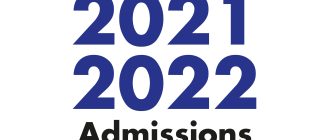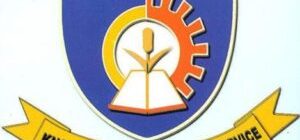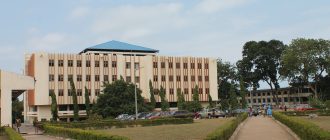Petroleum Engineering
The Department of Petroleum Engineering is one of the fivedepartmentsthat comprise the Faculty of Mineral ResourcesTechnologyof theUniversity of Mines and Technology(UMaT),Tarkwa,Ghana. The Department was established in 2009 to provide manpower for the new oil and gas industry ofGhana. The department runs a four yearprogrammeleading to the award of BSc. Degree in Petroleum Engineering.
The Department has a state-of-the-art laboratory which has Generic Oil and Gas Process Simulator (GENSIM 5000), Oil Cementing, Rock Properties and Reservoir Fluid equipment to aid the practical laboratory component of the Petroleum Engineering programme. The Department as part of its training programme, sends students to the Nigeria Oil Industry to undertake internship programme.
The Department has well qualified and seasoned lecturers, including visiting professors and scholars from UMaT partner universities. The department is currently partnering the Memorial University of Newfoundland (MUN),Canadaunder the auspices of Association of African Universities (AAU) in collaboration with Universities and Colleges of Canada (AUCC), to provide an avenue for UMaT to learn from MUN’s experience of university-industry linkages.
AIMS AND OBJECTIVES:
Aims
The programme aims at providing firm grounding in basic concepts of Petroleum Engineering and allied disciplines to meet the requirements for the Ghanaian and international petroleum and allied industries.
Objectives
The main objectives are:
• To train competent first degreegraduates.
• To prepare first degree graduates to take up jobs in the petroleum and allied industries.
• To prepare candidates for higher degrees in petroleum and petroleum relatedprogrammes.
|
|
YEAR ONE SEMESTER ONE | ||||
| Course No. | Subject | T | P | C |
| PE 151 PE 153 PE 155 PE 157 PE 159 PE 161 PE 167 | Applied Electricity Linear Algebra and Trigonometry Technical Drawing Communication Skills I Introduction to Computing Physical and Structural Geology Basic Mechanics | 2 2 2 2 1 2 2 | 2 2 2 1 2 2 2 | 3 3 3 2 2 3 3 |
Totals | 13 | 13 | 19 | |
YEAR ONE SEMESTER TWO | ||||
| Course No. | Subject | T | P | C |
| PE 150 PE 152 PE 154 PE 156 PE 158 PE 162 PE 170 PE 172 | Calculus Strength of Materials Physical and Analytical Chemistry Engineering Drawing Communication Skills II Applied Electronics Principles of Stratigraphy and Sedimentation Principles of Petroleum Engineering | 2 2 2 2 2 2 2 2 | 2 1 1 2 0 1 2 1 | 3 2 2 3 2 2 3 2 |
Totals | 16 | 10 | 19 | |
YEAR TWO SEMESTER ONE | ||||
| Course No. | Subject | T | P | C |
| PE 251 PE 255 PE 259 PE 263 PE 267 PE 269 PE 273 PE 275 PE 277 | Literature in English I Mathematical Analysis Geology of Ghana Drilling Operations and Equipment Thermodynamics Drilling Fluids Properties of Reservoir Rocks and Fluids Fundamentals of Natural Gas Engineering Applied Geophysics | 1 2 2 2 2 1 2 2 2 | 1 1 1 1 2 2 2 1 1 | 1 2 2 2 3 2 3 2 2 |
Totals | 16 | 12 | 19 | |
YEAR TWO SEMESTER TWO | ||||
| Course No. | Subject | T | P | C |
| PE 252 PE 254 PE 256 PE 264 PE 270 PE 272 PE 274 PE 278 | Literature in English II Drilling Engineering I Land Surveying Fluid Mechanics Field Trip and Technical Report Writing I Natural Gas Engineering Reservoir Engineering I Petroleum Exploration | 1 2 2 2 0 2 2 2 | 1 2 2 2 4 2 2 2 | 1 3 3 3 1 3 3 3 |
Totals | 13 | 17 | 12 | |
| * Fieldtrips maybe organised in either semester but the results shall be credited only at thesecond semester |
YEAR THREE SEMESTER ONE | ||||
| Course No. | Subject | T | P | C |
| PE 351 PE 353 PE 357 PE 359 PE 361 PE 373 PE 377 PE 375 | Computer Applications Drilling Engineering II Rock Mechanics Transportation of Oil and Gas Probability and Statistics Environmental Management in the Petroleum Industry Production Operations and Equipment Survey Field Work | 1 2 2 2 2 2 2 0 | 3 2 4 2 1 2 2 5 | 2 3 3 3 2 3 3 1 |
Totals | 13 | 21 | 20 | |
YEAR THREE SEMESTER TWO | ||||
| Course No. | Subject | T | P | C |
| PE 350 PE 352 PE 356 PE 372 PE 374 PE 378 PE 380 | Petroleum Production Engineering Public Relations Fieldtrip and Technical Report Writing II Gathering of Oil and Gas Well Logging Reservoir Engineering II Production Operation of Problem Wells | 2 2 0 2 2 2 2 | 2 0 4 2 2 2 2 | 3 2 1 3 3 3 3 |
Totals | 12 | 14 | 18 | |
| * Fieldtrips maybe organised in either semester but the results shall be credited only at thesecond semester |
YEAR FOUR SEMESTER ONE | ||||
| Course No. | Subject | T | P | C |
| PE 451 PE 453 PE 455 PE 457 PE 459 PE 461 PE 471 | Economic Development Planning Oil and Gas Field Project Evaluation Geographical Information Systems (GIS) Law of Contract and Torts Operations Research Principles of Economics Fundamentals of Enhanced Oil Recovery | 2 2 1 2 2 2 2 | 0 2 3 0 2 0 2 | 2 3 2 2 3 2 3 |
Totals | 13 | 9 | 17 | |
YEAR FOUR SEMESTER TWO | ||||
| Course No. | Subject | T | P | C |
| PE 450 PE 452 PE 454 PE 456 PE 458 PE 460 | Project Work Colloquium/Seminar BusinessEntrepreneurship Petroleum Laws and Regulations Principles of Management Instrumentation and Control | 0 1 2 1 2 2 | 12 4 0 3 0 2 | 4 2 2 2 2 3 |
Totals | 8 | 21 | 15 | |
COURSE OUTLINE FOR
BSc. DEGREE PROGRAMME IN PETROLEUM ENGINEERING
YEAR ONE SEMESTER ONE
PE 151 Applied Electricity (2, 2, 3)
Circuit laws. Circuit theorems. Electrostatics. Electromagnetism. Magnetic circuits. Inductance. Alternating voltage and current. Signal waveforms. Introduction to transformers, DC Machines, Induction Machines and Synchronous Machines.
PE 153 Linear Algebra and Trigonometry (2, 2, 3)
Complex numbers, De Moivre’s theorem and its application to: (i) summation of series, (ii) expansion of Sinnq and Cosnq in double angles, (iii) expansion of Sinnq and Cosnq intermsof Cosq and Sinq. Vector algebra and its applications. Introduction to matrix algebra. Spherical trigonometry.
PE 155 Technical Drawing (2, 2, 3)
Lettering with inclined and vertical strokes. Word spacing and compositions. General loci. Geometrical construction of regular polygons and their solids. Descriptive geometry. Isometric drawing. First and third angles orthographic/orthogonal projection.
PE 157 Communication Skills I (2, 0,2)
Introduction to communication: methods and systems of communication. Pre-writing skills: developing listening skills, note-taking and note-making, developing reading skills. Developing writing skills (I): Sentence level (the sentence as an ordered string of words, the simple sentence, basic sentence patterns, common grammatical errors.) Coordination and parallelism. Ambiguity. Conventions of usage.
PE 159 Introduction to Computing (1, 2, 2)
Introduction to IBM PCs. Windows operating system. Internet usage. Word Processing using MS Word. Spreadsheet using MS Excel. Programming using Visual Basic Applications (VBA).
PE 161 Physical and Structural Geology (2, 1, 2)
Introduction to Geology and its branches. Internal structure of the earth, continental margins – shelf, slope, rise. Plate tectonics, earthquakes, surface geomorphology. Principles of stratigraphy, fossils, geological time scale, radiometric methods of age determination. Brief treatment of the formation, classification, and identification of igneous and metamorphic rock. Primary (sedimentary and igneous) structures. Secondary structures – foliation, folds, faults, joints, veins, lineations.
PE 167 Basic Mechanics (2, 2, 3)
Introductory concepts of engineering mechanics involving basic principles in statics and dynamics with simple applications. Simple machines and conservation laws. Trusses.
YEAR ONE SEMESTER TWO
PE 150 Calculus (2, 2, 3)
Differentiation of algebraic and circular functions. Applications to maxima and minima. Partial differentiation. Integration including integration by parts. Ordinary differential equations. Laplace transforms. Beta and Gamma functions.
PE 152 Strength of Materials (2, 1, 2)
Mechanical properties of materials, Simple Stresses, Temperature stresses, Shear Stresses, Torsional Shear Stresses. Beams; Shear Force and Bending Moments. Bending Stresses in Beams. Complex Stresses: Two dimensional Stress, Mohr’s stress circle.
PE 154 Physical and Analytical Chemistry (2, 1, 2)
Bonding and periodicity. Chemical thermodynamics and kinematics. Solutions. Electrochemistry. Introduction to metal extraction processes, steps in chemical analysis. Gravimetric and volumetric analysis. Spectrophotometric methods of analysis. Chromatography, Electroanalytical procedures.
PE 156 Engineering Drawing (2, 2, 3)
Sectional views and standard conventions of sectional views. Curves of intersection of various planes and solids. Development of various solids like cylinders and spheres. Assembly drawings from both exploded views and working drawing views. Introduction to Autocad.
PE 158 Communication Skills II (2, 0, 2)
Developing writing skills (II): Paragraph level (the controlling idea, the topic sentence, supporting sentences and developing the paragraph, transitional devices.) Developing writing skills (III): The whole essay (forms of discourse, inductive and deductive reasoning.) Developing writing skills (IV): Style (registers, diction, spelling and punctuation, editing.)
PE 162 Applied Electronics (2,1, 2)
Physical principles of semiconductor devices. Transistors: feedback theorem, operational amplifier as an integrated circuit. Thyristors. Instrumentation.
PE 170 Principles of Stratigraphy and Sedimentation (2, 2, 3)
Formation, classification, and description of sedimentary rocks; Origin,migration and accumulation of hydrocarbons. Principles of stratigraphy and subsurface geology; Methos used in correlation of strata; loggingand evaluation of subsurface geologic data. The role of geology in petroleum production and development with particular reference to sandstone and carbonate reservoirs. Practicals: Field description, logging of cores and drill cuttings. Identification and use of micriofossils relevant to hydrocarbons.
PE 172 Principles of Petroleum Engineering (2, 1, 2)
General composition and properties of oil and gas. Physical properties of oil and gas bearing rocks. Basic principles and characteristics of petroleum reservoirs Fundamentals of oil gas well drilling. Principles of oil field development. Fundamentals of production methods and equipment. Fundamentals of transportation and gathering of and gas.
YEAR TWO SEMESTER ONE
PE 251 Literature in English I (1, 1, 1)
Introduction to literary terms and devices. Specific texts: prose, drama, poetry. Vocabulary and language use. Literature as a reflection of contemporary way of life or society (the texts as mirrors). Literature and morality (the texts as examples). Literature as a form ofentertainment.
PE 255 Mathematical Analysis (2, 1, 2)
Rolle’s theorem. Mean value theorems. Taylor’s theorem. Convergence of series. Power series. Taylor’s series and Maclaurin’s series. Indeterminate forms. Differentiation, parametric differentiation with application to plane curve.
PE 259 Geology of Ghana (2, 1, 2)
Stratigraphic succession of rocks in Ghana. Treatment of individual systems/series/formations and their associated economic deposits.
PE 263Drilling Operations and Equipment(2, 1, 2)
Function and composition of drilling equipment. Rotary equipment. Equipment of rig’s hoisting system. Draw works and auxiliary equipment. Derrick, masts, and substructures. Circulating equipment and accessories. Equipment of mud system Power plants. Characteristics of different prime movers. Types of power transmission. Derrick floor equipment and rig instrumentation. Drilling rig selection. Maintenance and safety measures.
PE 267 Thermodynamics (2, 2, 3)
Fundamental concepts. Zeroth, first and second laws of thermodynamics. Application to simple compressible substances. Introduction to gas power cycles.
PE 269 Drilling Fluids (2, 1, 2)
Basic Functions and requirements of drilling fluids rheological and wall building properties of drilling fluids. Materials and chemicals for preparation of drilling fluids. Testing of drilling fluids. Types of drilling fluids. Mud control. Handling and storage of mud materials and chemicals
PE 273Properties of Reservoir Rocks and Fluids (2, 2, 3)
Structures, properties and fluid contents of reservoir rocks. Darcy’s law and the concept of permeability for single and multiple flow. Capillary phenomena and state distribution of fluids. Calculation of hydrocarbon volume in place. Elementary flow pressures in reservoirs. Chemical, physical and thermodynamic properties of petroleum and reservoir fluids. Phase behaviour of multi-component hydrocarbon systems. Real gas laws. Liquid mixtures. Flash calculations. PVT calculations of reservoir fluids.
PE 275 Fundamentals of Natural Gas Engineering (2, 1, 2)
Chemical composition of Natural Gas Phase behaviour of Natural Gas Systems. Properties of Natural Gas and Volatile Hydrocarbon Liquids. Gas flow measurements; orifice meters. Meter-run installation. Flow control and pressure regulating instruments. Critical Flow Proverb Principles of gas transportation through pipeline. Safety measure in gas fields.
PE 277 Applied Geophysics (2,1,2)
Basic concepts of magnetic, gravity, Electrical resistivity and seismic methods. Common depth point (CDP) profiling & stacking. Time corrections applied to seismic data. Vertical Seismic Profiling (VSP). Data processing and 3D data and interpretation.
YEAR TWO SEMESTER TWO
PE 252 Literature in English II (1, 1, 1)
Reading and appreciation. Literary terms. Specific texts: prose, drama, poetry. Vocabulary and language use. Literature as a reflection of contemporary way of life or society (the text as mirrors). Literature and morality (the text as examples). Literature as a form of entertainment.
PE 254Drilling Engineering I (2, 2, 3)
Basic physical and mechanical properties of rocks. Subsurface temperatures and pressures. General method and equipment of rotary drilling. Rotary bits. Drill string. Power and torque required at the bit and rotary table. Drilling hydraulics, Pressure surges and anomalies. Lost circulation Casing and casing design. Fishing operations and practices, Cements and cementing operations, Coring operations, Wire line usage and service in drilling.
PE 256 Land Surveying (2, 4, 3)
Classification of surveys including chain and compass surveys. Levelling. Theodolite and applications. Optical Distance Measurement (ODM). Electromagnetic Distance Measurement (EDM). Astronomy.
PE 264 Fluid Mechanics (2, 2, 3)
Fundamental properties of fluids. Kinematics, dynamics and fluid statics. Bernoulli’s equation and its applications. Momentum equation. Introduction to hydrodynamics.
PE 270 Field Trip and Technical Report Writing I (0, 4, 1)
Field trip to an oil field during the semester. Students are required to present technical reports.
PE 272Natural Gas Engineering (2,2,3)
Properties of natural gases and volatile hydrocarbon liquids. Study of gas and gas-condensate reservoirs. Deliverability, reserves, recoveries, material balances. Gas-well testing: determination of static and flowing bottom-hole pressures. Gas production from condensate and oil fields. Field separation and absorption processes. Dehydration and sweetening of natural gas. Hazard and safety measures in handling of natural gas.
PE 274Reservoir Engineering I (2, 2, 3)
Gas reservoirs: Petroleum reservoir gas volume factors. Calculation of gas in place. Material balance in gas reservoirs. Gas condensate reservoir (GCR): Phase diagram, calculation of initial gas and oil in place. Performance of volumetric retrograde GCR. Material balance with retrograde GCR. Undersaturated oil reservoirs (UOR): Gas solubility, formation volume factors (FVF), calculations of initial oil in place. Material balance for UOR, solution gas, FVF, and compressibilities of gas, water, oil and rock. Effective compressibility calculation above the bubble point. Characteristics of gas cap and water drive reservoirs. Generalized material balance equation. Uses and limitation of material balances. Water influx, flash and differential gas liberation. Water injection at the rock well field, Maximum efficient rate(MER).
PE 278 Petroleum Exploration (2,2,3)
Introduction to 4D- a Reservoir Management Tool. Attribute analysis. Surface indications of subsurface oil and gas accumulations. Oil accumulation parameters etc, Development Geology and principles of prognostication of hydrocarbon reserves. Plate tectonics in Hydrocarbon accumulation onshore and offshore.
YEAR THREE SEMESTER ONE
PE 351 Computer Applications in Petroleum (1, 3, 2)
Database management using MS Access. Digitising. Contouring, volume and tonnage calculation using an appropriate software. Introduction to Petroleum Software Packages
PE 353 Drilling Engineering II (2, 2, 3)
Drilling fluid solids removal. Prediction of pore pressures and fracture gradients. Directional drilling and deviation control. Pressure control . Corrosion control in drilling operations . Straight hole drilling practices. Drill stem testing. Wellbore pressure, equivalent circulating density, well kick and interpredicting pressure, control methods. Offshore Drilling: Floating drilling subsea guides,guidestructure, casing and wellhead equipment, subsea BOP stack and control, marine riser and its tensioning system, guide line system. Drilling economics.
PE 357 Rock Mechanics (2, 4,3)
Scope of rock mechanics. Physical and mechanical properties of rocks. Rock mass structure. Stereographic projection in rock mechanics. Rock mass classification. Underground excavations in massive rock. Room and pillar design. Excavation support systems. Rock slope stability.
PE 359Transportation of Oil and Gas (2, 2, 3)
Pipeline transportation of oil and gas; principles, flow calculations, sizing and specifying pipe, selection of route, protection against corrosion Pipe laying maintenance of equipment .Pumps and compressors. Sampling and testing of oil and gas. Instrumentation and control. Safety and supervision. Economics of long distance pipeline. Rules and regulations. In transportation and storage of oil and gas. Storage of oil and gas. Types of storage tanks. Underground storage of natural gas
PE 361 Probability and Statistics (2, 1, 2)
Introduction to probability. Random variables and functions of random variables. Regression analysis and correlation. Methods of estimation. Confidence intervals. Test of hypothesis.
PE 373 Environmental Management in the Petroleum Industry (2,2,3)
Atmospheric air and air parameter; Gases in industries and their effectives; Atmospheric pollution; Water pollutants; Environmental concepts and impacts on onshore and offshore activities. Petroleum production operation and the environment. Environmental impacts assessments.
PE 375 Survey Field Work (0, 5, 1)
Field training during the semester. Students are required to present technical reports.
PE 377Production Operations and Equipment (2,2,3)
Well head equipment. Chokes and flow control. Production packer Gas-lift valves. Specification and principles of standard pumping units. Subsurface pumps of sucker rod pumping system. Accessories for sucker rod pumping. Dynamometer. Echo sounding instruments. Equipment of hydraulic pumping system. Equipment of submersible pumping system. oil and gas measurement and regulating instruments. Automation and process control instruments. Hazard and safety measures in handling and operating of oil field instruments and equipment
YEAR THREE SEMESTER TWO
PE 350Petroleum Production Engineering (2, 2, 3)
Inflow performance relationship. Vertical two-phase flow. Horizontal two-phase flow. Choke/Bean performance. Performance of flowing well and its design. Principles of gas-lift. Gas-lift valve mechanics. Continuous and Intermittent gas-lift design. Principles of chamber lift and plunger lift. Sucker rod pumping design. Selection of pumping units. Application of dynamometer. Dynamometer card analysis. Design and selection of electrical submersible pumping installation. Design and selection of hydraulic pumping system
PE 352 Public Relations (2, 0, 2)
Meaning, nature and scope of Public Relations (PR). Approaches to PR. Forms of PR. Tools and methods of communication in PR. Building a corporate image in organisations.
PE 356 Fieldtrip and Technical Report Writing II (0, 4, 1)
Field trip to an oil field during the semester. Students are required to present technical reports.
PE 372Gathering of Oil and Gas (2, 2, 3)
Basic principles of oil & gas gathering system. Type of oil & gas gathering system. Oil & Gas separators; Performance types. accessories and selection; Equipment for oil & gas gathering system; Pipe & Fittings. manifolds; flow rate measurements pressure controller system.
PE 374Well Logging (2, 2, 3)
Electrical, nuclear and elastic wave propagation properties of rocks. Effect of drilling operation on formation conditions near the wellbore. Statement of log-interpretation problem in terms of bore- hole condition. Principles of measurement, objectives and properties, unit of measurements and evaluation of various well logs and combinations. Interpretation in water-wet, oil-wet, and multiple- porosity type reservoir rocks.
PE 378Reservoir Engineering II (2, 2, 3)
Water Influx: Hydraulic analogs, solutions to diffusivity equation, determination independent of material balance calculations, analytically expressions and simultaneous calculation including initial oil in place. Fluid flow in reservoirs; Darcy’s Law, viscosities of water, oil and natural gas, types of fluid and compressibility flows, productivity index, permeability variation in radial flow, productivity ratio, electric models and other well problems. Zonal damage and well spacing. Recovery and deliverability. Displacement of Oil and Gas; Relative permeability, Buckly-Leverett displacement mechanism, oil recovery by internal gas drive, relative permeability ratios from field data, productivity index decline in depletion reservoirs, displacement of oil by water in stratified reservoirs, sweep efficiency.
PE 380Production Operations of Problem Wells (2, 2, 3)
Well completion and perforation. Completion and workover fluids. Problem well analysis. Formation damage; causes, prevention, and removal. Surfactants for well treatment. sand control. Well stimulation with hydraulic fracturing. Matrix and fracturing acidizing. Scale deposition, removal, and prevention. workover operations; types and selection of workover system. Corrosion ; detection, control, and prevention
YEAR FOUR SEMESTER ONE
PE 451 Economic Development Planning (2, 0, 2)
Introduction to economic development and planning. Economic development: Theories, strategies, problems and policies. Economic planning: Principles, techniques, strategies. Third world and economic development and planning. The role of externalfinance(‘Foreign Aid’) in development and planning of the Ghanaian economy.
PE 453 Oil and Gas Field Project Evaluation (2, 2, 3)
Elements of economic evaluation. Time value of money. The economic decision process. Assessment of risk and uncertainty. Simulation of the Monte Carlo Simulation method. Evaluation of future production by performance trend. Petroleumaccountingpractices. Cost estimation principles. Oil and gas field planning and management. Profitability analysis. Types and purpose of report.
PE 455 Geographic Information Systems (1, 3, 2)
Need for GIS, application fields. Data input and output. Data quality and management. GIS analysis functions and implementation.
PE 457 Law of Contract and Torts (2, 0, 2)
Law and legal system. Contract and conditions for valid contracts. Contracts andbusinessorganisations. Abrogation of contracts.
PE 459 Operations Research (2, 2, 3)
Application of the following operations research techniques in solving mining problems: Linear and integer programming. Assignment and transportation problems. Decision analysis. Project scheduling methods: CPM, PERT. Simulation techniques. Application of appropriate computer software.
PE 461 Principles of Economics (2, 0, 2)
Introduction to microeconomics. Demand and supply and price theory. Elasticities. Economies of scale. Optimal input combinations and cost functions. Perfect competition, monopoly, imperfect competition (monopolistic competition, oligopoly, cartel, etc).Businessorganisation and securities. Introduction to macroeconomics. Functions of government. Measurement of national output and income. Money and banking. Unemployment and inflation. Petroleum economics.
PE471Fundamentals of Enhanced Oil Recovery (2, 2, 3)
Secondary and tertiary recovery mechanisms including water flooding. Thermal processes; steam stimulation and flooding, hot water injection, and in situ combustion. Chemical processes: micellar solution, polymer and caustic flooding. Miscible hydrocarbon displacement: LPG miscible slug, high pressure lean gas miscible and carbon dioxide miscible processes. Some case histories.
YEAR FOUR SEMESTER TWO
PE 450 Project Work (0, 12, 4)
The project should be relevant to the petroleum industry and it is recommended that data and current information from an industrial source should be used.
PE 452 Colloquium/Seminar (1, 4, 2)
The seminar on an approved subject in the form of oral presentation on scientific topic by students.
PE 454 Business Entrepreneurship (2, 0, 2)
The basis, scope and challenges of entrepreneurship. Starting a new venture and developing the business. Financing the new venture. Managing the new venture. Special issues (legal, political, technical and social). Intrapreneurship. International entrepreneurship.
PE 456 Petroleum Laws and Regulations (1, 3, 2)
The framework for managing the upstream petroleum industry in Ghana as established and given legal backing by two main statutes, PNDC Law 64 and the Petroleum Exploration and Production Law, PNDC Law 84, supplemented by the Petroleum Income Tax Law, PNDC Law 188 of 1987. Oil mines regulations and other environmental legislations.
PE 458 Principles of Management (2, 0, 2)
The role and functions of management including planning, organising, staffing, leading and controlling with emphasis on supervision and leadership, communication and motivational techniques, training and development, productivity improvement, time and conflict management within the mining environment. Analysis of financial statements.
PE 460 Instrumentation and Control (2, 2, 3)
General Introduction to the science of measurement. Introduction to strain gauges. Advanced strain gauge system. General discussion on open and closed loops. Translation elements and block diagrams. Types of systems response. The theory and practice of control technology. General comments on other types of controllers.





